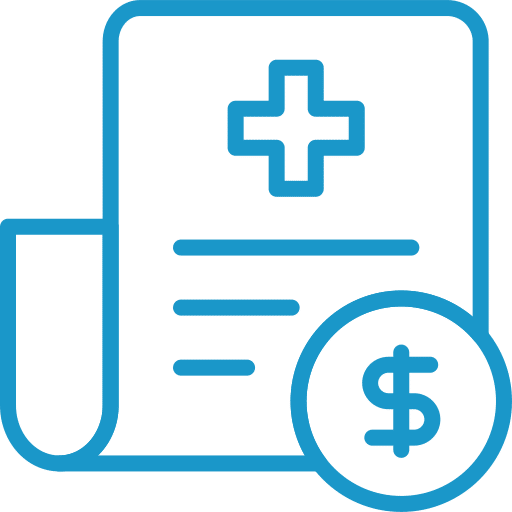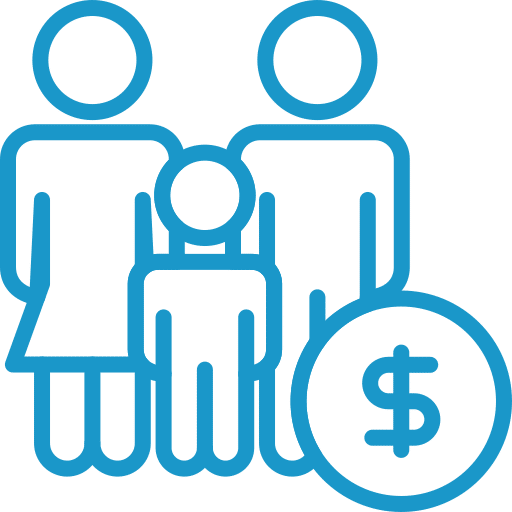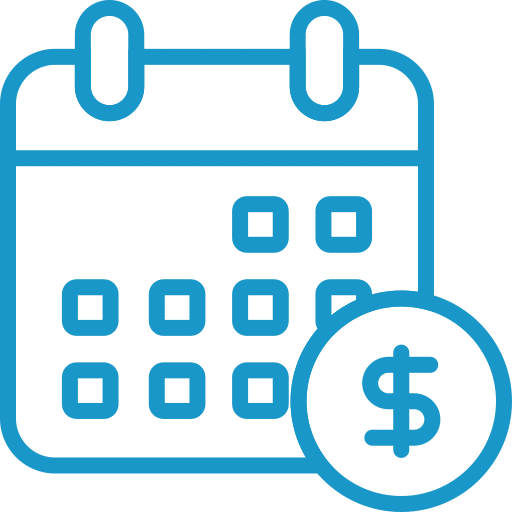How to Get a $50,000 Personal Loan







Where to find $50,000 loans fast (July 2024)
Searching for a $50,000 personal loan? Whatever the reason may be for you to get a $50k personal loan, we are here to help you find the best rates. It can seem like a daunting task to apply for a personal loan or even understand all the details, but we will explain in detail what to expect and how to go about it.
At Pasha Funding, we simplify this process and promise to make you feel confident in getting one step closer to your dreams by obtaining the funding you need.
Get started by comparing rates on $50k loans from our partners.
Compare personal loan rates
Compare personal loan rates in July, 2024
Need help finding the right loan?
No worries, we've got you covered! Compare personalized loan options in just minutes.
How Pasha Funding Works

Compare personal loan rates
When it comes to personal finance, planning is key. This is especially true when contemplating a significant financial decision like borrowing $50,000.
Securing such a loan can provide the funds required for major life events or financial endeavors, but it's not a decision to be taken lightly. It's crucial to understand your financial situation and carefully consider the impact it will have on your future.
The following factors are essential when deciding to take out a large loan:
- Ability to Repay: Your current income and expenses play a crucial role in determining if you can comfortably meet the repayment schedule.
- Credit Score: Lenders look at your credit history to assess how likely you are to repay the loan. A good credit score can increase your chances of approval and secure you a better interest rate.
- Interest Rate: The cost of borrowing money is not just the amount you borrow, but also the interest that accumulates over time. Comparing rates from different lenders ensures you get the best deal.
- Loan Term: The length of time you have to repay the loan affects both your monthly payment and the total interest paid over the life of the loan.
Understanding these factors provides a solid foundation for navigating the process of securing a $50,000 loan.
Understanding $50,000 Personal Loans
When considering a significant loan like $50,000, knowing the factors that determine your eligibility is key.
The Role of Credit Score in Loan Applications
When considering your loan application, lenders primarily evaluate your creditworthiness. This assessment is largely based on your credit score, which serves as an indicator of your financial reliability. A higher credit score generally implies a lower risk of default, thereby making you a more appealing candidate for the loan.
For a large-scale loan like $50,000, lenders typically prefer borrowers with credit scores that fall within the 'good' to 'excellent' range.
Your credit score is essentially a numerical summary of the information contained in your credit report. It reflects how well you've managed your debt in the past and is calculated based on the following factors:
- Payment History: Have you made all your payments on time? Late or missed payments can significantly lower your credit score.
- Credit Utilization Ratio: This refers to the amount of credit you're using compared to your available credit limit. Lower utilization rates are better for your score.
- Length of Credit History: Lenders prefer borrowers with a longer history of managing credit responsibly.
- New Credit Inquiries: Applying for new credit frequently can negatively impact your score.
- Mix of Credit Types: Having a mix of different types of credit (such as mortgages, car loans, and credit cards) can be beneficial for your score.
Importance of Good to Excellent Credit
For large loans such as $50,000, lenders usually prefer borrowers with good to excellent credit scores. Here's what those terms typically mean:
- Good Credit (670–739): Borrowers with good credit have proven that they can manage their debts effectively. They usually qualify for loans with reasonable interest rates.
- Excellent Credit (740 and above): These individuals have a long history of punctual payments and responsible credit management. They typically get the best interest rates available.
Maintaining a good to excellent credit score is essential when applying for substantial loans. This not only increases your chances of approval but also helps you secure more favorable terms, such as lower interest rates.
Income and Debt-to-Income Ratio
Your income and debt-to-income ratio are additional factors that lenders take into account. They want to ensure you have the financial means to repay the loan without adding excessive strain to your budget.
Different types of lenders may offer $50,000 loans:
- Traditional Banks: These institutions typically provide competitive interest rates and terms. However, they might have stricter eligibility criteria compared to other lending options.
- Online Lenders: An increasingly popular choice for borrowers due to their streamlined application process and quick funding times. They may also cater to borrowers with less-than-perfect credit.
- Credit Unions: As member-owned institutions, credit unions often offer competitive rates and more personalized service than traditional banks.
In your search for cost-effective options for borrowing $50,000, it's essential to compare offers from different lenders. The key is finding an option that best fits your financial situation - considering not just the interest rate but also factors such as loan term, fees, and repayment flexibility.
Evaluating and Comparing Loan Offers
When seeking a $50,000 loan, you may find yourself overwhelmed by the multitude of available options. To make an informed decision, it's crucial to effectively evaluate these offers. Two popular tools for this purpose are Credible.com and Bankrate, both are renowned loan comparison platforms.
These platforms enable you to view various loan offers in the market at a glance. With Credible.com or Bankrate, you can:
- Compare interest rates
- Analyze loan terms
- Assess monthly payments
- Understand cumulative costs
Both Credible.com and Bankrate simplify the process of shopping for loans by providing accurate and extensive information. These platforms generate a list of potential lenders that meet your criteria based on your inputted requirements and financial status. This feature proves invaluable as it helps you navigate through the vast lending market.
As reliable sources for loans, Credible.com and Bankrate serve as trustful guides in your pursuit of cost-effective $50,000 loans. Not only do they provide information on traditional banks but also online lenders and credit unions.
Just remember, while Credible.com and Bankrate are comprehensive resources, it's still crucial to independently verify the terms and conditions presented by each lender. This way, you can ensure that you opt for a loan that is truly aligned with your financial situation.
Top Lenders for $50,000 Personal Loans
When you're seeking out a substantial loan such as $50,000, it's crucial to approach reputable lenders who can offer competitive rates and terms. Let's review some of the top lenders in the market.
1. LightStream
- APRs ranging from 7.99% to 25.49%
- Flexible terms and funding dates
- Minimum credit score requirement of 695
- No origination or prepayment fees
- Rate Beat program pledges to match competitor rates by 0.1%
2. SoFi
- APRs between 8.99% and 25.81%
- Additional benefits like financial education resources, financial coaches, unemployment protection, and discounted autopay rates
- Minimum required credit score of 680
3. Upstart
- Personal loans up to $50,000
- APR range of 8.49% to 35.99%
- Ideal for borrowers with less-than-perfect credit scores (a minimum of 600)
- Fast funding without prepayment penalties
4. Upgrade
- Similar terms to Upstart
- APR range of 8.49% to 35.99%
- Minimum credit score requirement of 600
Other notable lenders include:
- Discover
- Best Egg
- Avant
Each offering their unique benefits and loan terms that cater to different borrower profiles.
Remember, choosing a lender should be based on your specific financial situation and borrowing requirements. It's always advisable to research extensively before committing to a lender.
Calculate payments on a $50,000 loan
Total Payment
-
Total Interest
-
Monthly Payment
-
Ready to apply for a personal loan?
Compare rates from top lenders with no impact on your credit, ever.
Quick links

Ready to apply for a $50k personal loan? Get started today.
Compare personal loan rates
Applying for a $50,000 Loan
Navigating the application process for a $50,000 loan doesn't need to be complex. The key is to be prepared with all the necessary documentation and to follow each step meticulously.
Start with Preparation: A Comprehensive Guide
Before you dive into the process of securing a $50,000 loan, it's crucial to start with comprehensive preparation. This involves not just financial readiness, but also a psychological commitment to meeting your obligations.
Understanding Your Financial Health
Credit Score Check
Your credit score plays a significant role in your loan eligibility and the interest rates you can secure. Lenders use this three-digit number as a measure of your creditworthiness. Here's what you should do:
- Check your credit score: Use free online tools or services provided by your bank to check your current score.
- Understand where you stand: Generally, scores above 700 are considered good, while anything above 800 is seen as excellent. If your score falls below 680, you might face higher interest rates or even struggle to get approved.
- Improve if necessary: If your score isn't quite up there yet, don't worry - there are steps you can take to improve it. These include paying bills on time, reducing outstanding debts, and avoiding new debts.
Stable Income Source
Having a steady income source is equally crucial when applying for a loan. Lenders want assurance that you're capable of repaying the borrowed amount within the stipulated period.
- Review your income sources: This includes salary from employment or profits from business activities. Other possible sources could be rental income or any other regular earnings.
- Ensure stability: Lenders usually prefer borrowers who have been in the same job or business for at least two years.
- Calculate debt-to-income ratio (DTI): This helps determine whether you have enough income to cover both existing debts and new loan repayments. Most lenders prefer a DTI ratio under 36%.
Preparing Mentally
Getting ready for a $50,000 loan isn't solely about financial preparedness; it also requires a mental commitment to manage the loan responsibly. Remember, defaulting can negatively impact your credit score and future borrowing potential.
- Understand the responsibility: Taking on a loan is a serious commitment that requires consistent repayments over an extended period of time.
- Plan for repayments: Create a budget factoring in your loan repayments. Make sure it's realistic and aligns with your financial situation.
- Be prepared for changes: Life is unpredictable. Build an emergency fund to ensure you can cover repayments even if unexpected expenses arise.
In conclusion, thorough preparation – both financial and mental – is the bedrock of securing and managing a $50,000 loan effectively. Take time to assess your readiness before proceeding with the application process.
Select Your Preferred Lender
After you've prepared, the next step is to select your lender. This should ideally be based on their interest rates, loan terms, and customer reviews.
Complete the Application Form
Once the lender is chosen, move towards completing the loan application form. This usually includes personal details such as name, address, contact information, Social Security number, employment details, and income information.
Provide Required Documentation
The application process also requires certain documents. These typically include:
- Proof of identity (two forms): This could be a driver's license, passport or any government-issued ID.
- Proof of address: A utility bill or lease agreement works well for this purpose.
- Proof of employment: This could be recent pay stubs or tax returns.
- Proof of income: Again, pay stubs or tax returns can fulfill this requirement.
Submit Your Application
After filling out the form and attaching all relevant documents, submit your application. Lenders usually take a few days to review your application and make a decision.
Remember that each lender may have specific instructions or requirements for their application process. It's important to carefully read their guidelines before applying.
Now let's see how to tackle bad credit scenarios while applying for a $50,000 loan.
Managing Bad Credit and Improving Approval Chances
Securing a $50,000 loan with bad credit can be challenging because lenders view it as a higher risk. When your credit score is low, lenders may reject your loan application or offer you a loan with high interest rates. But don't worry, there are steps you can take to manage bad credit and improve your chances of getting approved:
Solutions for Bad Credit
Here are some potential solutions for individuals with bad credit:
- Explore bad credit loans: Some lenders specialize in providing loans to people with less-than-perfect credit. While these loans may come with higher interest rates, they can still be a viable option for getting the funds you need.
- Seek a cosigner: Adding someone with good credit to your loan application can increase your approval chances. A cosigner essentially "guarantees" the loan and takes responsibility for repayment if you're unable to make payments.
- Consider collateral: Secured loans require you to provide an asset as collateral, such as a car or home equity. Having collateral can give lenders more confidence in approving your loan despite your credit score.
Building and Maintaining Good Credit
In addition to exploring the above options, it's important to work on improving your credit score over time. Having a good credit score is crucial for obtaining favorable loan terms in the future. Here are some tips for building and maintaining a good credit score:
- Make timely payments: Paying your bills on time is the most significant factor that affects your credit score. Set up automatic payments or reminders to ensure you never miss a due date.
- Reduce debt levels: High levels of debt can negatively impact your credit score. Focus on paying down existing debts and avoid taking on new ones.
- Avoid unnecessary credit inquiries: Each time you apply for new credit (such as a loan or credit card), it results in a hard inquiry on your credit report. These inquiries can slightly lower your credit score, so only apply for credit when necessary.
By addressing these areas, you can gradually improve your financial standing and enhance your eligibility for loans with better terms in the future.
Exploring Alternatives: Home Equity Loans and More
When thinking about borrowing a significant amount like $50,000, it's worth considering alternative options to a personal loan. One such alternative is a home equity loan.
A home equity loan allows you to borrow against the value of your home. This type of loan can be useful for those who have built up substantial equity in their property and need access to a large sum of money. Home equity loans typically offer lower interest rates compared to personal loans. However, it's crucial to remember that your home serves as collateral, meaning that if you fail to repay the loan, you could risk losing your home.
Another variant of the home equity loan is a Home Equity Line of Credit (HELOC). A HELOC operates similarly to a credit card, where you have a credit limit that you can draw from as needed. You only pay interest on the amount you've borrowed from the line of credit.
While these options can be beneficial for homeowners, not everyone has access to this kind of borrowing due to factors such as lack of home ownership or insufficient equity. In such cases, other alternatives include:
- Peer-to-peer (P2P) Lending: This involves borrowing from an individual or group of individuals instead of a financial institution.
- Borrowing from Retirement Accounts: Some retirement accounts allow you to borrow against them, but this should be considered carefully due to potential tax implications and impact on retirement savings.
It’s important for all potential borrowers to weigh the pros and cons of these alternative loan options before making a decision.
Conclusion
Embarking on the journey to acquire a $50,000 loan is a significant financial decision that should be navigated with thorough planning and consideration. Reflect on your current and future financial health, ensuring that the commitment aligns with your long-term goals and doesn't jeopardize your fiscal stability.
Responsible borrowing is key, as it not only helps you manage your finances today but also secures your financial future. Stay proactive about managing debts, creating a solid repayment plan, and always keeping an eye out for any changes in your financial situation that may affect your ability to repay the loan.
For those who might need additional support or clarity, numerous resources are available:
- Credit counseling services can provide personalized advice to help you understand the implications of a large loan.
- Loan calculators are useful tools for forecasting monthly payments and interest over the life of the loan.
Remember, taking out a loan is more than just getting access to funds; it's a partnership with the lender that requires dedication and discipline. Before signing on the dotted line, ensure you're ready for this financial responsibility. If you're prepared and informed, a $50,000 loan can be a strategic move to fulfill your needs or achieve your dreams.
Compare loan options for good and excellent credit:
- 680 Credit Score Personal Loans
- 700 Credit Score Personal Loans
- 750 Credit Score Personal Loans
- 800 Credit Score Personal Loans
Browse personal loans by amount:
- $5k Personal Loans
- $10k Personal Loans
- $25k Personal Loans
- $35k Personal Loans
- $50k Personal Loans
- $75k Personal Loans
- $100k Personal Loans
Additional resources
Federal Trade Commission (FTC): The FTC is a U.S. government agency that focuses on consumer protection. They provide guidance on various financial topics, including personal loans. You can find information on understanding personal loans and tips for borrowing wisely on their website.
U.S. Small Business Administration (SBA): Although primarily focused on assisting small businesses, the SBA offers resources and information on personal loans for business purposes. It can be helpful for entrepreneurs seeking loans to fund their ventures.
Consumer Financial Protection Bureau (CFPB): The CFPB is another U.S. government agency that provides consumer financial information and resources. They cover various aspects of personal loans, including understanding loan terms, comparing offers, and avoiding scams.
Apply for a $50,000 personal loan
The application process for a $50,000 personal loan is quite simple and can be broken down into four steps.
- Search and compare different lenders and loan options.
- Fill out an application, submit it, and make sure to include any important documents that the lender might need (tax statements, etc.).
- Ace the interview (not always applicable - some lenders include an interview into their application process).
- Receive your $50,000 personal loan.
As you can see, applying and getting approved for a large personal loan isn’t as stressful and complicated as often made out to be. With the right tools and information, this can be a very doable process and help relieve any financial tension that may exist in order to get one step closer to your big dream.
Compare personal loans from top lenders
Are you ready to find a personal loan for your needs? We've partnered with Credible to help you find your rate. Checking your score is free and won't impact your credit!
Personal Loans for Every Occasion
Find Your Best Rate
Compare Best Personal Loans
Personal Loan Payoff Calculator
Personal Loan Lender Reviews
Personal Loans By Credit
Personal Loans for Fair Credit
Personal Loans for Good Credit
Personal Loans for Excellent Credit
Personal Loan Types
Auto Repair Loans
Credit Card Consolidation Loans
Fast Personal Loans
Home Improvement Loans
Horse Barn Financing
Wedding Loans
Family Planning Loans
Funeral Financing
Land Purchase Financing
Manufactured Home Financing
Medical Loans
Cosmetic & Plastic Surgery Financing
Owner Builder Construction Loans
Personal Loans for House Down Payment
Personal Loans for Self Employed
Personal Loans for Furniture Expenses
Student Loans
Debt Consolidation Loans
Vacation & Travel Loans
Emergency Personal Loans
Personal Loans with Co-signers
Home Improvement Financing
Appliance Financing
Bathroom Remodel Financing
Basement Remodel Financing
Boat Dock Loans
Deck Financing
Driveway Paving Financing
Fence Financing
Flooring Financing
Furnace Financing
Garage Financing
Home Addition Financing
Hot Tub Financing
HVAC Financing
Home Insulation Financing
Interior & Exterior Painting Financing
Kitchen Remodel Financing
Kitchen Cabinet Financing
Pole Barn Financing
Roof Financing
Solar Panel Financing
Swimming Pool Financing
Sunroom Addition Loans
Window Replacement Financing
Loan rate & terms disclosure: Prequalified rates are based on the information you provide and a soft credit inquiry. Receiving prequalified rates does not guarantee that the Lender will extend you an offer of credit. You are not yet approved for a loan or a specific rate. All credit decisions, including loan approval, if any, are determined by Lenders, in their sole discretion. Rates and terms are subject to change without notice. Rates from Lenders may differ from prequalified rates due to factors which may include, but are not limited to: (i) changes in your personal credit circumstances; (ii) additional information in your hard credit pull and/or additional information you provide (or are unable to provide) to the Lender during the underwriting process; and/or (iii) changes in APRs (e.g., an increase in the rate index between the time of prequalification and the time of application or loan closing. (Or, if the loan option is a variable rate loan, then the interest rate index used to set the APR is subject to increases or decreases at any time). Lenders reserve the right to change or withdraw the prequalified rates at any time.
Requesting prequalified rates on Credible is free and doesn't affect your credit score. However, applying for or closing a loan will involve a hard credit pull that impacts your credit score and closing a loan will result in costs to you.









